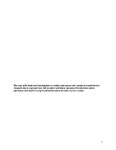Regulatory Reliance and Post-Marketing Surveillance Systems for Safe and Accelerated Introduction of New Medical Products in Low- and Middle-Income Countries
| dc.contributor.supervisor | Hutchinson, Claire | |
| dc.contributor.author | Nwokike, Jude | |
| dc.contributor.other | Faculty of Health | en_US |
| dc.date.accessioned | 2023-02-15T11:09:12Z | |
| dc.date.available | 2023-02-15T11:09:12Z | |
| dc.date.issued | 2023 | |
| dc.identifier | 10715396 | en_US |
| dc.identifier.uri | http://hdl.handle.net/10026.1/20369 | |
| dc.description.abstract |
Though delayed access to medicines is still common, disease outbreaks in the past three decades has driven speedier introduction of innovative medical products. Yet, successful models for safe and accelerated introduction of new medical products in low- and middle-income countries are scarcely documented. Recent viral diseases outbreaks like Ebola, COVID-19, and Monkeypox has further highlighted the need for regulatory preparedness for health emergencies. Well-resourced countries have developed expedited regulatory pathways for such situations, while LMICs are not as prepared. They lack models for adopting best practices for implementing regulatory reliance and integrated post marketing surveillance (PMS). Experiences gained from our work strengthening regulatory systems for HIV/AIDS, Tb, and malaria may inform the development of best practices and models for accelerated introduction of future medical products. Chapter 1 of this thesis provides summary of research outputs which documents my published work on introduction of new medical products in global health. Chapter 2 is an integrative literature review of pharmaceutical access, regulatory reliance, and PMS, concluding that regulatory reliance and PMS are critical for safe and accelerated introduction of new medical products in LMICs. However, gaps and challenges exist, and they lead to delayed access which costs lives. To address those gaps, in Chapter 3 we developed Model Integrated Quality and Safety Review (IQSR) checklist, reliance-based review, and tools for integrated surveillance. Evolution in medicines regulation is typically predicated by access campaigns or mishaps. Stronger regulatory systems with well-established approaches for implementing reliance and post market surveillance have the capability to ensure safe and accelerated introduction of new medical products. To ensure that best practices are implemented, we recommended practical tools for the operationalization of reliance practices and post marketing surveillance systems. The tools identified will help regulators, industry, global health experts in advancing timely access to address unmet medical needs. | en_US |
| dc.language.iso | en | |
| dc.publisher | University of Plymouth | |
| dc.subject | Integrated Quality and Safety Review | en_US |
| dc.subject | Regulatory reliance | en_US |
| dc.subject | post marketing surveillance systems | en_US |
| dc.subject | pharmacovigilance | en_US |
| dc.subject | safety surveillance | en_US |
| dc.subject | quality surveillance | en_US |
| dc.subject | quality overall summary | en_US |
| dc.subject | adverse events | en_US |
| dc.subject | expedited regulatory pathways | en_US |
| dc.subject | innovative medical products | en_US |
| dc.subject | drug registration | en_US |
| dc.subject.classification | PhD | en_US |
| dc.title | Regulatory Reliance and Post-Marketing Surveillance Systems for Safe and Accelerated Introduction of New Medical Products in Low- and Middle-Income Countries | en_US |
| dc.type | Thesis | |
| plymouth.version | publishable | en_US |
| dc.identifier.doi | http://dx.doi.org/10.24382/843 | |
| dc.rights.embargoperiod | No embargo | en_US |
| dc.type.qualification | Doctorate | en_US |
| rioxxterms.version | NA |
Files in this item
This item appears in the following Collection(s)
-
01 Research Theses Main Collection
Research Theses Main


